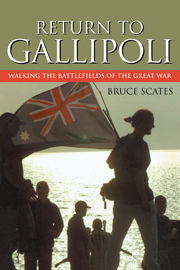Book contents
- Frontmatter
- Contents
- List of illustrations
- Note on money, measurement and terminology
- List of abbreviations
- Acknowledgments
- Introduction: journeys into history
- Part I Loss, Memory, Desire
- Part II Family Journeys
- 3 In foreign fields: the first family pilgrimages
- 4 ‘Sacred places’: family pilgrimage today
- Part III Soldiers' Tales
- Part IV Testament of Youth
- Conclusion: journey's end
- Epilogue: The ghost of memory
- Notes
- Survey Informants
- Index
3 - In foreign fields: the first family pilgrimages
Published online by Cambridge University Press: 22 September 2009
- Frontmatter
- Contents
- List of illustrations
- Note on money, measurement and terminology
- List of abbreviations
- Acknowledgments
- Introduction: journeys into history
- Part I Loss, Memory, Desire
- Part II Family Journeys
- 3 In foreign fields: the first family pilgrimages
- 4 ‘Sacred places’: family pilgrimage today
- Part III Soldiers' Tales
- Part IV Testament of Youth
- Conclusion: journey's end
- Epilogue: The ghost of memory
- Notes
- Survey Informants
- Index
Summary
In April 1917 Matron Samson sat in her small makeshift office in the isolation hospital at Le Ville. The shift was just changing, a long day of tending the sick and the dying drawing to a close. Matron Samson would write one more letter that evening and, as always, she would choose her words carefully. Anxious families would scrutinise every sentence, squeezing the most from each tiny solace, or grieving for a lifetime over some unintended meaning. But this last letter was easier than most. Matron Samson had written before to Vera Deakin; the crisp, typed instructions of Red Cross correspondence suggested calm and order – quite unlike the desperation of dying men and the broken hearts they'd leave behind them. And Private Overson's death was better than many. ‘Young and delicate looking’, he wasn't the sort to linger. Meningitis could carry him them off quite quickly – a mercy really. But, of course, she couldn't say that. What other consolation could she offer them? Matron Samson dipped pen into ink and wrote large and deliberately:
I wonder if it would be comforting to his people to know that his night nurse, Miss Troller, is one of the best in every way, a first class nurse, a womanly woman, and I am quite sure he was as carefully and tenderly nursed as if he was with his own people. It is the poor parents that suffer. They imagine all kinds of things. This young boy was too ill even to miss his loved ones and the few seconds he was sensible he seemed just content. I wish there was more to tell his people – Some day, perhaps, they will visit his grave which, as you know, is carefully kept and marked with a plain wooden cross … part of the cemetery … is set apart for [our] soldiers and the graves are kept neat and nice by our own convalescent boys. I saw them at work the other day and noticed an Australian and New Zealander among the party.
- Type
- Chapter
- Information
- Return to GallipoliWalking the Battlefields of the Great War, pp. 63 - 99Publisher: Cambridge University PressPrint publication year: 2006



